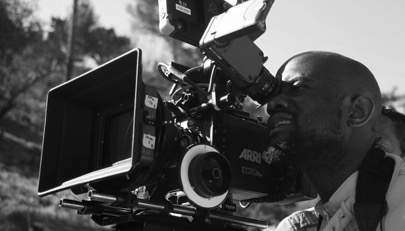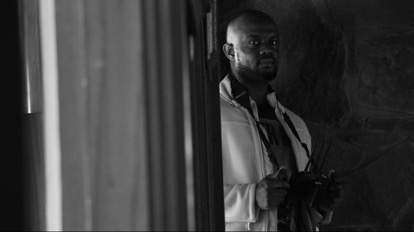
So many factors are essential to how a film is received but perhaps none more so than who is telling the story and who is receiving it. Obinna Onyeri is a filmmaker from the African continent who understood that the experience of racism in his homeland might differ from that of the United States. To explore the effects of this and the union it might share with these two cultures, he created Pendulum. There’s nothing sensationalistic or hyperbolic about this film. It’s like a slow simmer that prompts the audience to discuss their views on the film and its real-world inevitable factuality.
The dialogue is measured with exacting precision and leaves space for the audience to ponder the characters’ intentions and motivations. Pendulum is truly character-centric and makes perfect use of the imperfections of these people who think themselves to be well intended. The story and the characters are brash at times and the times at which they are apologetic only heightens the tone of anxiety. Writer/director Obinna Onyeri takes the plot to unexpected places.
The film’s cinematographer Gionatan Tecle declares, “Robert is fearless and extremely confident in what he wants out of his films and what he is trying to address when telling his story. Working with Robert either in the pre-production or production is a never-ending open dialogue on visual form and representation of our character. We know what to expect from each other. His team can see him challenging himself to get to new places on a film, it’s inspiring and expected from all of us. He pushes me to places that are uncomfortable but there’s always a level of trust there. Robert possesses that quality that I think all the great directors have, an appetite for life.”

The multiple perspectives presented in Pendulum communicate a great deal about what happens to us and what we make it mean. For married couple Alan and Petunia, it means keeping a secret for decades that one of them regrets and the others does not. For their son George, it’s attempting to discover that secret and how it challenges the view of his family that he’s always had. For Oliver, it is more about exploring events of his past and framing how he feels about them.
Decades ago, Alan and Petunia gave their first son (Oliver) up for adoption because they feared society’s ills (Oliver is a person of color). In present day, Petunia seeks connection and possibly forgiveness while George is off kilter with the notion that he has a sibling whom he’s never knew about. There are many layers of emotion reverberating among the characters but most pivotal is the way in which Oliver perceives himself, his present life, and the motivation of his birth parents.
Oliver calls Petunia out on her white-savior behavior and informs both her and George that he is doing okay in life and was adopted by parents of the same ethnic group as him, thus his forever parents were able to prepare him better for a life growing up in America as a person of color. Petunia and George head home soon after, and mother and son are left to deal with the consequences of the past.

Pendulum is not a relaxing film to watch, nor should it be. It’s contemplative in the way that only a film which causes us to reflect within is capable. The scenario in this film has certainly occurred too many times to document but by taking us along with him, Obinna has allowed society the perspective to meditate on the virtues and foibles of such actions. Perspective is literally one of the most dynamic elements of this film.
The “oner” early in the film during the family fight scene is astounding in terms of the choreography between the actors and cameras. When George confronts Petunia in the parking lot and they argue, the interaction manifests a type of “emotional vertigo.” Always willing to challenge himself, Obinna threw out the film’s original ending in the editing room.
He confesses, “I realized that the ending we had gotten wasn’t working. My editor and I decided to rewrite the ending into a montage sequence of George, Petunia, and Oliver having a moment to reflect on the incident before. And because there was no dialogue for the scenes, I had my actors reflect on a time in their life when they felt most vulnerable without sharing it with me or anyone on the crew; just deep meditation, and this proved efficient because the specific emotions I wanted shined through.” This statement only hints at the continual surprises offered by Pendulum at the hands of a master filmmaker.
Writer: Coleman Haan